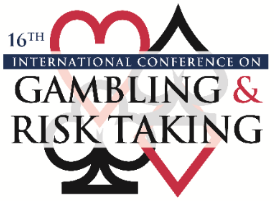Session Title
Session 1-4-C: Protecting the Young
Presentation Type
Event
Location
The Mirage Hotel & Casino, Las Vegas, Nevada
Start Date
7-6-2016 4:00 PM
End Date
7-6-2016 5:30 PM
Disciplines
Applied Behavior Analysis | Psychology
Abstract
A major challenge for lottery operators worldwide lies in motivating sales partners to check whether customers meet the minimum age requirement for the purchase of lottery products and thus use this control measure to prevent their sale to minors. Measures used by Austrian Lotteries to raise awareness of this topic range from responsible gaming (RG) training for sales partners and the provision of information materials for staff and customers to restrictive procedures like warnings and contract termination when a sales partner is caught repeatedly selling lottery products to minors.
A recent study based on 1,421 mystery shopping tests and on a survey with 4516 respondents of 5,162 sales partners in 2014 examined whether and to what extent the trainings provided produced the desired behavior.
The study applied Kirkpatrick’s (1998) four level model and Ajzen’s (1991) theory of planned behavior to examine how a sales partner’s attitude to player protection measures, perception of pressure from society, assessment of barriers to implementation in the day-to-day sales setting and the training provided from 2010 to 2014 influenced adherence to provisions to protect minors.
Regression analyses were used to study the significance of these factors for adherence to such provisions, while CHAID analysis served to identify those traits that significantly distinguished the defined sales partner groups (no breaches versus breaches in mystery shopping tests) from one another.
The results are being presented to international experts for the first time.
Keywords
protection of minors, responsible gaming training, evaluation, lottery retailers, prevention, behavior
How Modifiable Is Behavior? Factors of Influence for Adherence to Provisions to Protect Minors in the Sale of Gambling Products.
The Mirage Hotel & Casino, Las Vegas, Nevada
A major challenge for lottery operators worldwide lies in motivating sales partners to check whether customers meet the minimum age requirement for the purchase of lottery products and thus use this control measure to prevent their sale to minors. Measures used by Austrian Lotteries to raise awareness of this topic range from responsible gaming (RG) training for sales partners and the provision of information materials for staff and customers to restrictive procedures like warnings and contract termination when a sales partner is caught repeatedly selling lottery products to minors.
A recent study based on 1,421 mystery shopping tests and on a survey with 4516 respondents of 5,162 sales partners in 2014 examined whether and to what extent the trainings provided produced the desired behavior.
The study applied Kirkpatrick’s (1998) four level model and Ajzen’s (1991) theory of planned behavior to examine how a sales partner’s attitude to player protection measures, perception of pressure from society, assessment of barriers to implementation in the day-to-day sales setting and the training provided from 2010 to 2014 influenced adherence to provisions to protect minors.
Regression analyses were used to study the significance of these factors for adherence to such provisions, while CHAID analysis served to identify those traits that significantly distinguished the defined sales partner groups (no breaches versus breaches in mystery shopping tests) from one another.
The results are being presented to international experts for the first time.


Comments
Attachment: PDF containing 29 slides